Mobile clinics restore health for rural Syrians
A health system broken by war leaves Syrians desperate for care.
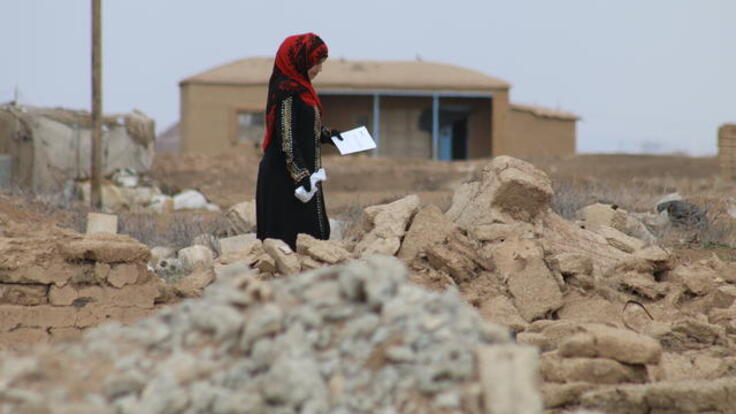
Syria’s public health system, once a strong network of primary and specialty care facilities, has been decimated by years of war. Clinics and hospitals are in ruins, and pharmaceutical production has stopped. Over 70 percent of the health workforce has fled the country.
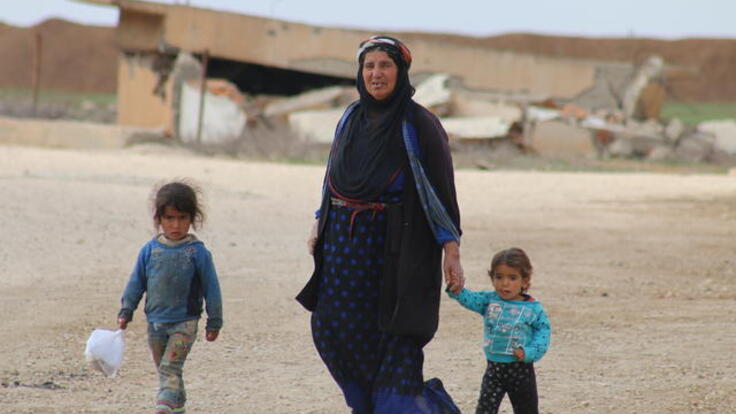
Families move from village to village seeking safety, work and schooling for their children. Many have gone for years without access to health care or medication. Parents have had to deal with their children’s fevers, diarrhoea and infections with no safety net if their health deteriorates. Once-healthy adults now face severe disability from unchecked disease, stress and trauma.
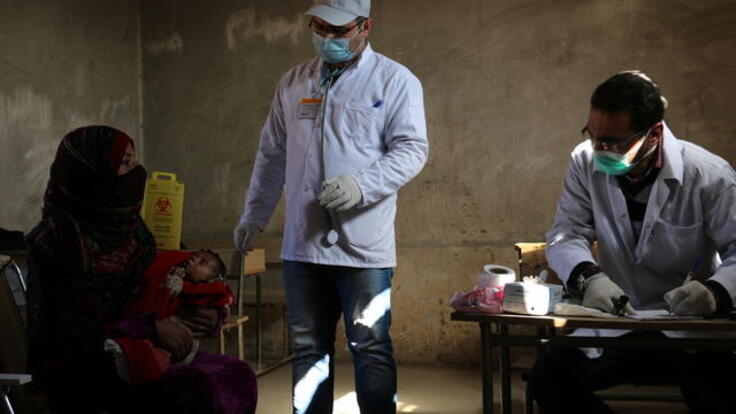
IRC mobile health teams are providing lifesaving care and medication twice a month to remote villages and tent cities across Syria. “The destruction is massive, and so is the damage to people’s health,” says one doctor. “Our mobile clinics are providing some of the first health care and medication people have had in over two years, free of charge.”
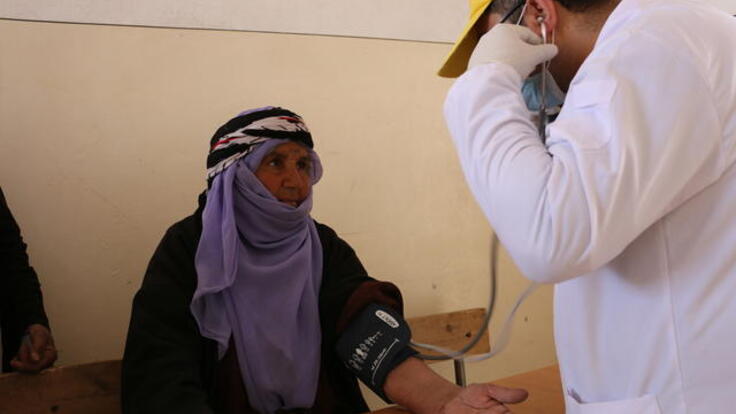
Each mobile clinic comprises a doctor, nurse, midwife and pharmacist to provide primary and reproductive care. Teams use a room in a mosque, a school, or even someone’s home to conduct exams and dispense medication—in the most damaged villages, they turn abandoned buildings into makeshift clinic space. Two mobile clinics cover about 20 villages across the rural northeast and have reached over 8,000 patients since early 2017.
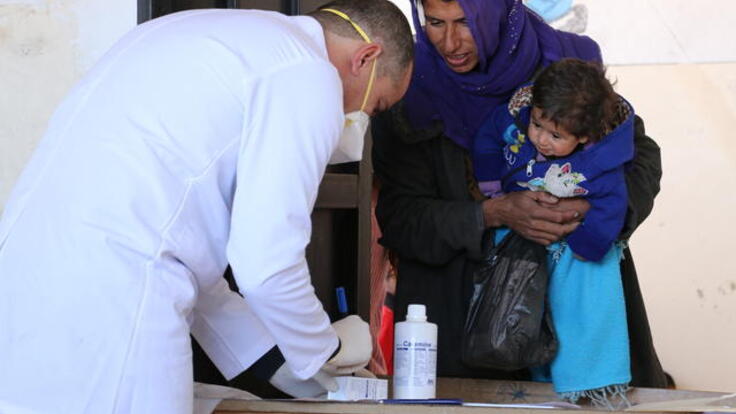
A mother gets medicine and instructions from an IRC pharmacist during a clinic day. Syria once produced 90 percent of its own pharmaceuticals; today, there is a shortage of essential medicines, and what is available in the market comes at a high price. “For two years, we moved between villages to avoid fighting,” says one patient. “Medications were sort of available, but not all the time. We never had enough money.”
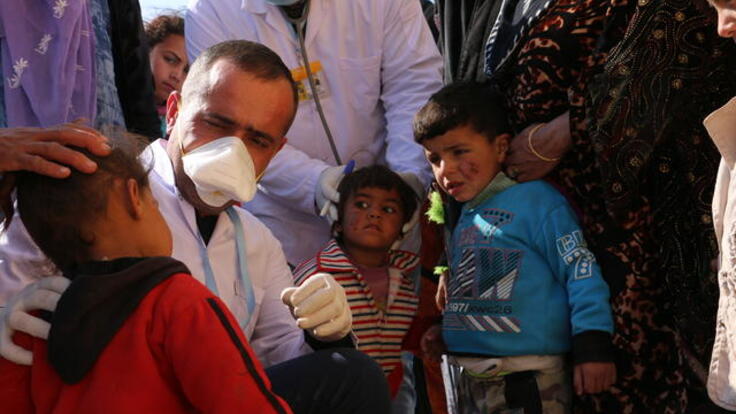
As the battle for ISIS-controlled Raqqa intensifies, families are fleeing to roadside camps and settlements. Many need emergency care. An IRC mobile unit recently treated 500 people from Raqqa for diarrhoea, respiratory infections and skin conditions like leishmaniasis (above). Caused by sand flies, leishmaniasis often afflicts people suffering from malnutrition and weak immunity. Left untreated, the condition can affect internal organs.
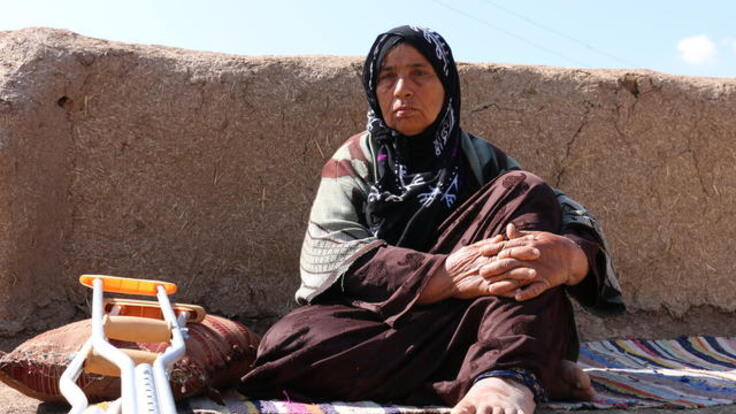
The IRC is training a network of community health workers to carry out regular visits to households in remote villages where displaced people are returning to their homes. Community health workers build trust among clients and provide health education and referrals to IRC mobile clinics. Patients such as Miriam (above), a 65-year-old homebound woman in northeastern Syria, now have access to vital medication—for Miriam, drugs to control her diabetes—and can get regular checkups. The IRC also provided Miriam with a wheelchair.
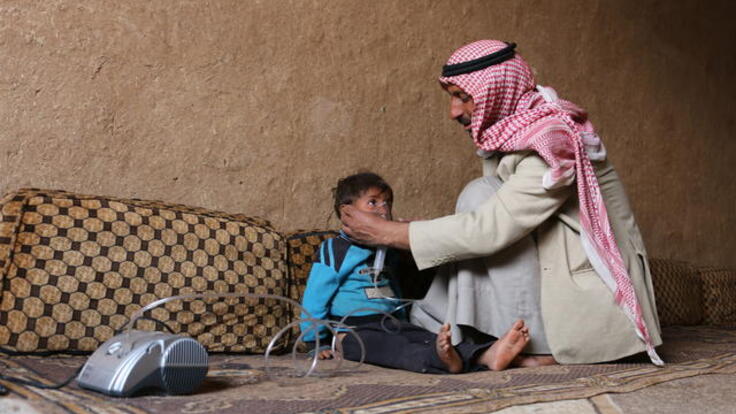
Abdulrahman, a farmer, gently places a breathing mask on his son Jamil’s face. The IRC mobile clinic provided the mask and special medication to help Abdulrahman manage Jamil’s asthma. “If the clinic did not come to us, it would be very hard,” he says. “What if we needed a doctor? We would have to go at least 100 kilometers [60 miles] to the nearest city just to get help.”
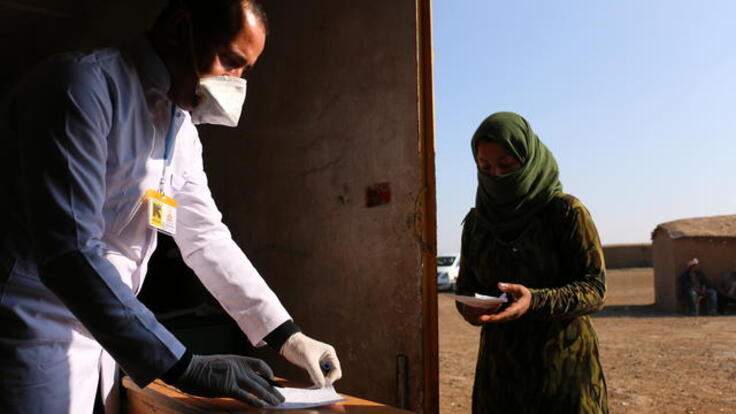
Restoring health is a slow process, but the IRC is filling a critical gap in care for Syrians who no longer have access to their country’s once-strong public health system. Our mobile clinics are responding to acute emergencies in the south, north and northeast regions while establishing regular primary, reproductive and chronic-disease care in communities trying to rebuild. For families who’ve lived for years with little safety or stability, mobile services provide new connection—and new hope.
Get the latest news about the IRC's innovative programmes, compelling stories about our clients and how you can make a difference. Subscribe